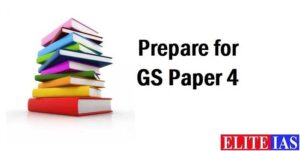Political Science Optional: Political Science is one of the most popular subjects among civil service aspirants to be chosen as an optional. The very nature of subject and the broad scope it offers makes it perfectly fit for civil service exams but also makes it extremely hard to prepare for. If you are looking to take political science as your civil services optional, you will need to develop a strategy to develop the best notes and harness them properly. Let us take a look at some of the tips that will allow you to come up with a good strategy for your exam.
- Start with the NCERT Books: As with most other subjects, it is always the best approach to begin with the basics and who does basics better than NCERT. Political Science starts in schools from the sixth grade and continues to grade 12 for people choosing the humanities and arts streams while stopping in class 10 for others. Before everything else, you should obtain NCERT political science books for all these classes and read them multiple times. Plus, every time you need to return to basics or need a doubt clarified in simplest terms, these books will be your best choice.
- IGNOU Course Material for Advanced Studies: Not many people are aware of this but the Indira Gandhi National Open University makes their course material available for free in the form of downloadable content that you can read on a phone or tablet. The materiel is available for bother Bachelors Degree and Masters Degree level. The material is so good that you should go though it before spending any money on any advanced book in Political Science. These are available for free and come in pdf format for widest possible device accessibility. You can also print them for offline reading but there are so many of them and printing it all will drive you poor. IGNOU actually sells printed study material and buying it is always a better approach.
- A Set of Quick Notes: Before everything else, you should start with a set of quick notes. These should be made from the material mentioned above while focusing on actual syllabus declared for political science exam by the UPSC. The concept behind quick notes is to make your own ready reference kit. It should be concise and cover all topics in 5 to 10 lines with some room for important statistics etc. Under no circumstances should this line limit per topic be exceeded since the goal is to act as a primer or quick reminder. Something that should be used only for regular quick recaps.
- The book of statistics: Yeah, political science and statistics! And believe me there are so many of them that you are in for a big surprise. You need to compile a book of statistics for every topic that is covered in the syllabus. This will actually help you with other exams as well but the focus of this book of statistics is to act as a ready reckoner for numbers that you would need to use to strengthen your arguments in your answers in the exams as well as interview. When you come across any new data point, immediately update your book of statistics.
- A Lump of Detailed Notes. This is where the actual heavy lifting happens. Prepared detailed essays on all topics as well as their subsidiary topics. This is where you actually gain ad display true knowledge of the subject in general and topics in particular. All detailed notes should be prepared in a set format and then revised and refined all through your course of study.
- The shape and structure of your essays: Your essay for every topic should be divided in eight sections. These include
- An opening section that should break open the topic. The goal is to demonstrate your knowledge about topic and its subject. Two small paragraphs should suffice.
- The amplification section where you receive the topic in two larger paragraphs. Here you should elaborate your theme without actually revealing later sections sections.
- A preliminary paragraph to set the tone of your argument. Consider this the point where essay starts.
- One long paragraph of initial argument that you want to resent about the topic. It should be written in sentence pairs, preferably at least nine and smooth transition between pairs
- Multiple paragraphs as needed for your central arguments. Do not constrain yourself in word limit here. Write all that you need and think is necessary.
- Another set of multiple paras for the latter part of your arguments, preferably tied with statistics. Consider this the initial approach to conclusion.
- Now you come to final approach to conclusion where you write sentence pairs to revisit the main topic and tie any lose ends.
- Final Conclusion where you present your findings and options about the topic on hand.
This technique will help you a lot in your exam.


